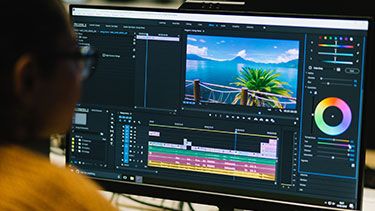Semester 1
Academic English
This module focuses on speaking and listening, reading and vocabulary, writing and grammar, and academic writing. The aim is to build your confidence in communication.
Numeracy Skills
You will gain basic skills in counting, solving number problems, measuring, estimating, sorting, noticing patterns, and adding and subtracting numbers.
Study Skills
This module will teach you how to effectively absorb, comprehend, process, and retain information within a learning context. You will learn strategies and techniques to enhance your learning capacity to succeed in higher education. Topics will include: avoiding plagiarism, managing your time, reading, note taking, referencing and revision.
Seminar Sessions (Employability)
During this module, you will participate in BCU’s Graduate+. This employability scheme is designed to help you grow as a future graduate and prepare you for your individual career aspirations. Activities include volunteering, part-time work, and joining a society/team.
Semester 2
Interactive Learning Skills and Communication
Throughout this module, you will learn the academic skills needed for success at a UK university, such as:
- Time management
- Public speaking techniques
- Appropriate language styles
- Professional communication and presentation
- Researching and referencing techniques.
Numerical Techniques 1
This module will introduce you to basic mathematics and mathematical applications – including equations, algebraic problems and trigonometry.
Programming Techniques
This module covers the fundamentals of programming, how it is used, and how it contributes to the engineering process and solves engineering problems. You will also learn about the purpose and processes of object-orientated programming, as well as gaining an introductory understanding of Java.
ICT Skills
This module will introduce you to the concepts of ICT skills, including applications and reporting mechanisms.
Semester 3
Numerical Techniques 2
This module covers a variety of numerical techniques associated with basic number theory, including:
- Cartesian coordinates
- Indices
- Logarithms
- Polynomial, quadratic and simultaneous equations
- Geometric progressions.
Design Concepts
This module will introduce you to design, the importance of design and the fundamentals of technical drawing.
Introduction to Web Application Development
This module introduces the core concepts, tools, and practices of web application development. It focuses on developing practical skills in HTML, CSS, and JavaScript while laying a strong conceptual foundation in how web technologies work together to create interactive web pages. You will apply design principles, code structure, and basic programming to create responsive and visually engaging websites.
Critical Thinking
You will be introduced to the fundamentals of critical thinking. You will learn how to examine and comment on components of an argument, so that you can develop a structured and analytical response.

